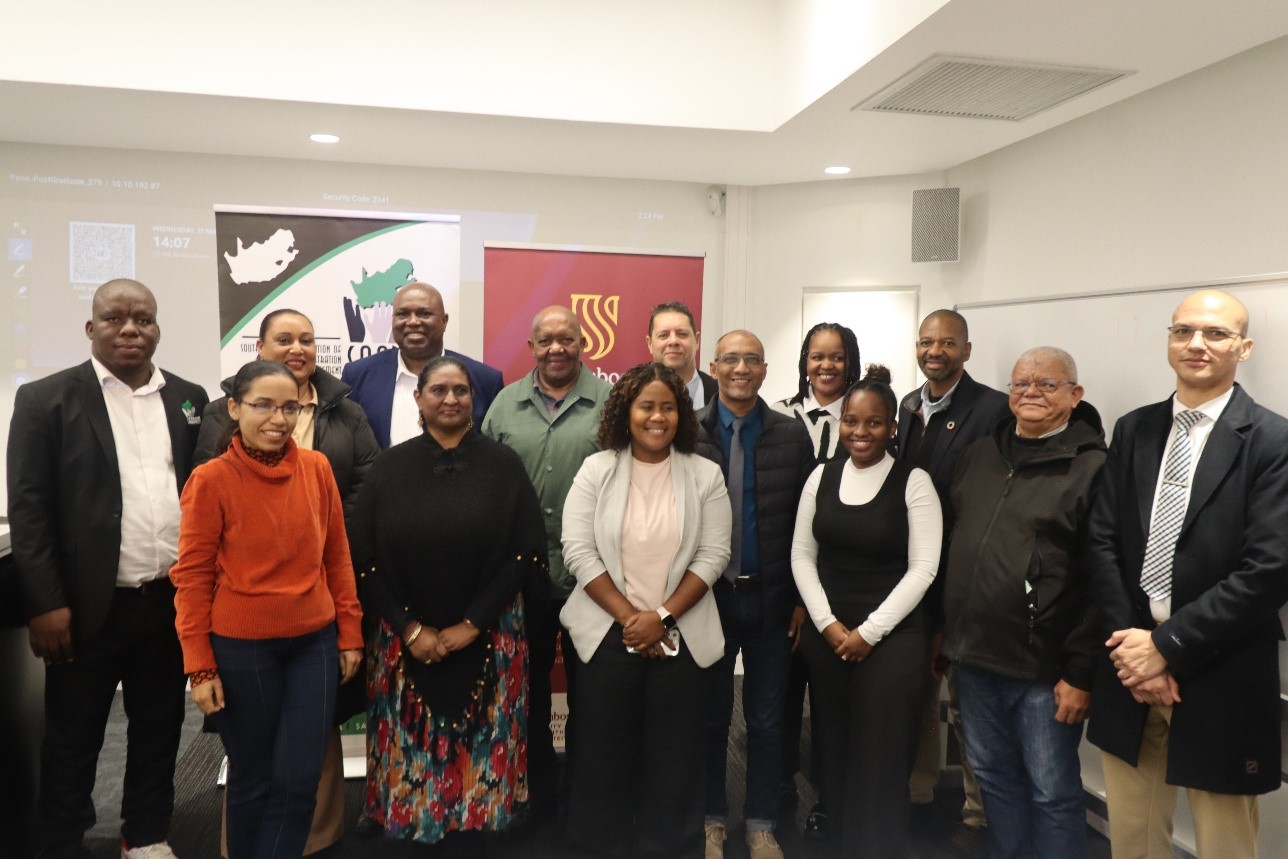By: Oratile Matsapola
On the 21st of May 2025 the Stellenbosch University under the School of Leadership recently hosted a thought-provoking conversation. The gathering had stakeholders namely South African Association of Public Administration and Management (SAAPAM) and South African Local Government Association (SALGA). The topic of the day was “What is the future script for Local Government on Service Delivery?” The discussion was enriched by a message of support from the President of SAAPAM Professor Kgothatso Shai, setting the tone for a meaningful exchange of ideas and solutions.
The region in which Stellenbosch University is located it encapsulates both exemplary and challenged models of the municipal governance it offers a unique vantage point for contextualized academic. Hence the essence of this gathering is relevant.
In the mist of the participants the university was blessed with the presence of Chief Executive Officer, Mr Sithole Mbanga from (SALGA) who focused on the future of local government service delivery that is centered on effective administration, acceptable resourcing and a strong political orientation toward the needs of the community. He highlighted key areas of focus, including capabilities, governance, and leadership, which require collective responsibility beyond just elected officials. This includes addressing challenges such as poor oversight, limited consequence management, and instability at senior management levels, ultimately impacting local skills and service delivery.
Enhancing service delivery requires a multifaceted approach that includes improving infrastructure, increasing transparency, and ensuring that local government officials are equipped with the necessary skills and resources to meet the demands of their roles. By prioritizing these areas, local governments can better serve their communities and address the pressing issues that affect residents’ quality of life.
The public service commission’s entry into local government could be a pivotal step towards enhancing service delivery. By providing oversight, guidance, and support, the Commission can help local governments improve their administrative capacity, promote good governance, and ensure that resources are used efficiently. Mr Ashley Searle said that “this involvement could also help to address issues of corruption and inefficiency, which often hinder service delivery”. The Commission’s role in promoting a culture of accountability and transparency within local government is crucial for building trust with the communities they serve
The former deputy speaker of the parliament Mr Lechesa Tsenoli spoke about white paper on local government, he said it provides a vision for a more responsive, effective, and inclusive local government system. However, realizing this vision requires urgent and meaningful change. This includes addressing capacity constraints, ensuring adequate resourcing, and aligning political leadership with the needs and priorities of the community. By embracing this change, local governments can move towards a more sustainable and equitable model of service delivery that meets the needs of all residents. The question remains whether local governments are ready to embrace this change and work towards a better future for their communities. The guest speakers’ insights highlighted key areas for improvement in local governance, including effective administration, fiscal policy, spatial transformation, and service delivery. To bring these solutions to life, it’s essential that we collectively prioritize capacity building, good governance, and leadership accountability. The essence of this gathering goes beyond merely identifying national or local government challenges, it serves as a substance for personal and institutional growth, encouraging us to reflect on how we can improve ourselves and our practices in all aspects of our work. By embracing this mindset, we can work towards creating better, more responsive, and more effective local governments that truly serve the needs of our communities.






